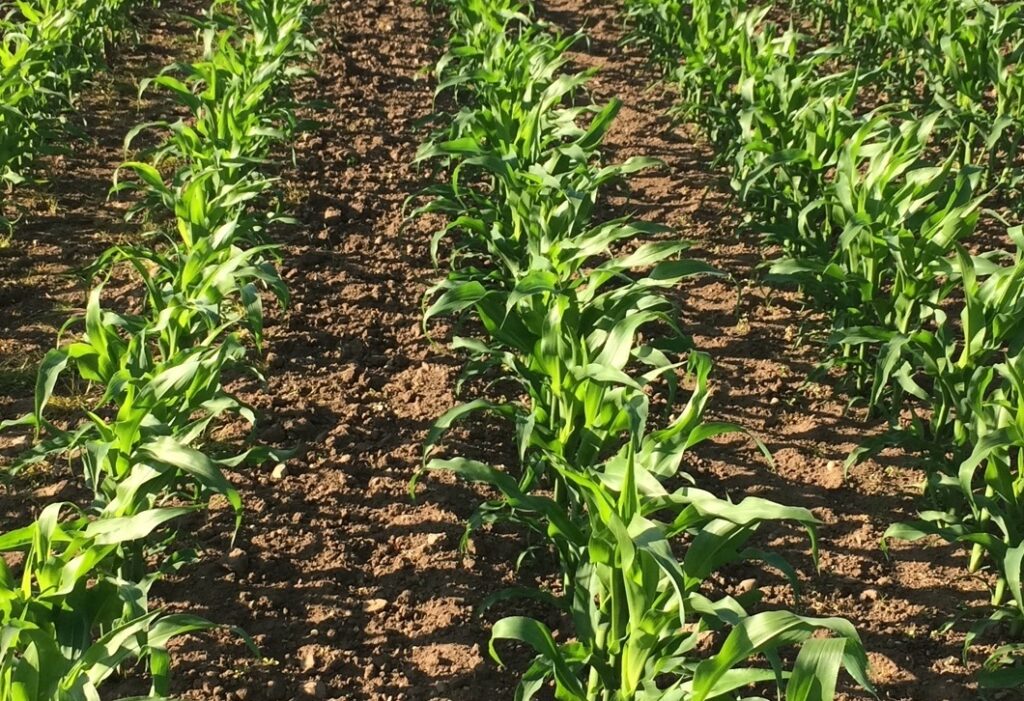Maximising maize yields using effective weed control strategies
25th April 2022
Be flexible and tailor pre- and post-emergence sprays to specific weed burdens on fields, advises independent agronomist Richard Cromie.
With rising input costs – specifically around fertiliser – and reduced herbicide options, this may lead to strategy changes when establishing new maize crops this spring.
For Hampshire-based independent agronomist Richard Cromie of Crop Management Partners, a huge variation in soil types – often on a field-to-field basis – amongst many of his customers, combined with catchy wet weather partly due to being in the rain shadow of the Isle of Wight, are key challenges across the 500ha of maize he annually advises on across Hamphire, West Sussex and Wiltshire.
“Within my territory I see everything from light sands to chalk and clay cap, so strategy advice on maize establishment and weed control can vary enormously – often from field to field with some growers,” Mr Cromie comments.
“The losses of key actives have limited the choice on tank mix advice; and recent changes to UK weather, with short bursts of very heavy rain often followed by prolonged dry spells, have made the traditional strategy of early planning and early commitment to a pre-em spray far more difficult than was the case five years ago.
“On product choice for pre-ems, pendimethalin, partnered with either S-metolachlor or dimethenamid-P, are both effective in easing initial weed pressure before the main post-emergence spray is applied. Never leave a big time gap between the pre-em and post-em sprays, especially if the initial weed burden in the field is significant.
“On post-emergence sprays, strategies can vary a lot, depending on whether you were able to get a pre-em spray onto the crop. If you’re dealing with heavy weed burdens, and you didn’t get the pre-em on due to dry soil conditions, then you may have to apply two post-emergence sprays. However, for most growers, a well-timed single spray is still the aim. On product advice for post-em tank mixes, Diva (pyridate) is an excellent choice. It will improve the broad-leaved weed spectrum of its tank mix partners, and it’s particularly effective on stubborn weeds such as cranesbill.
“The fact that Diva has excellent crop safety, with no following crop or soil cultivation restrictions, means it’s also very flexible in situations when maize is grown on land following vegetable crops in the rotation. This can often limit the use of other maize herbicides due to label restrictions. Diva works extremely well alongside other herbicides and, when applied at a rate of 0.75-litres/ha, it has the positive effect of extending their reach, with the aim of making 1 post-emergence spray the target in most weed control scenarios.
“The Belchim 3-way tank mix approach of Fornet 6OD (nicosulfuron), Temsa SC (mesotrione) and Diva, all applied at rates of 0.75-litres/ha, works well in late spray situations when weeds are at 2–4 true leaves. As with all post-emergence applications in maize, the key advice is spray timing – targeting the weeds at the 2–3 leaf stage, and keeping the maize crop as clean as possible until the young maize plants reach the 6–8 leaf stage when they can out-compete most weeds.
“If you have to go in again with a second post-em spray then Diva is still a solid choice for the tank mix. It can be applied twice, at 0.75-litres/ha per application, when targeting heavier weed burdens or when dealing with a second, later flush of weeds,” he concludes.


